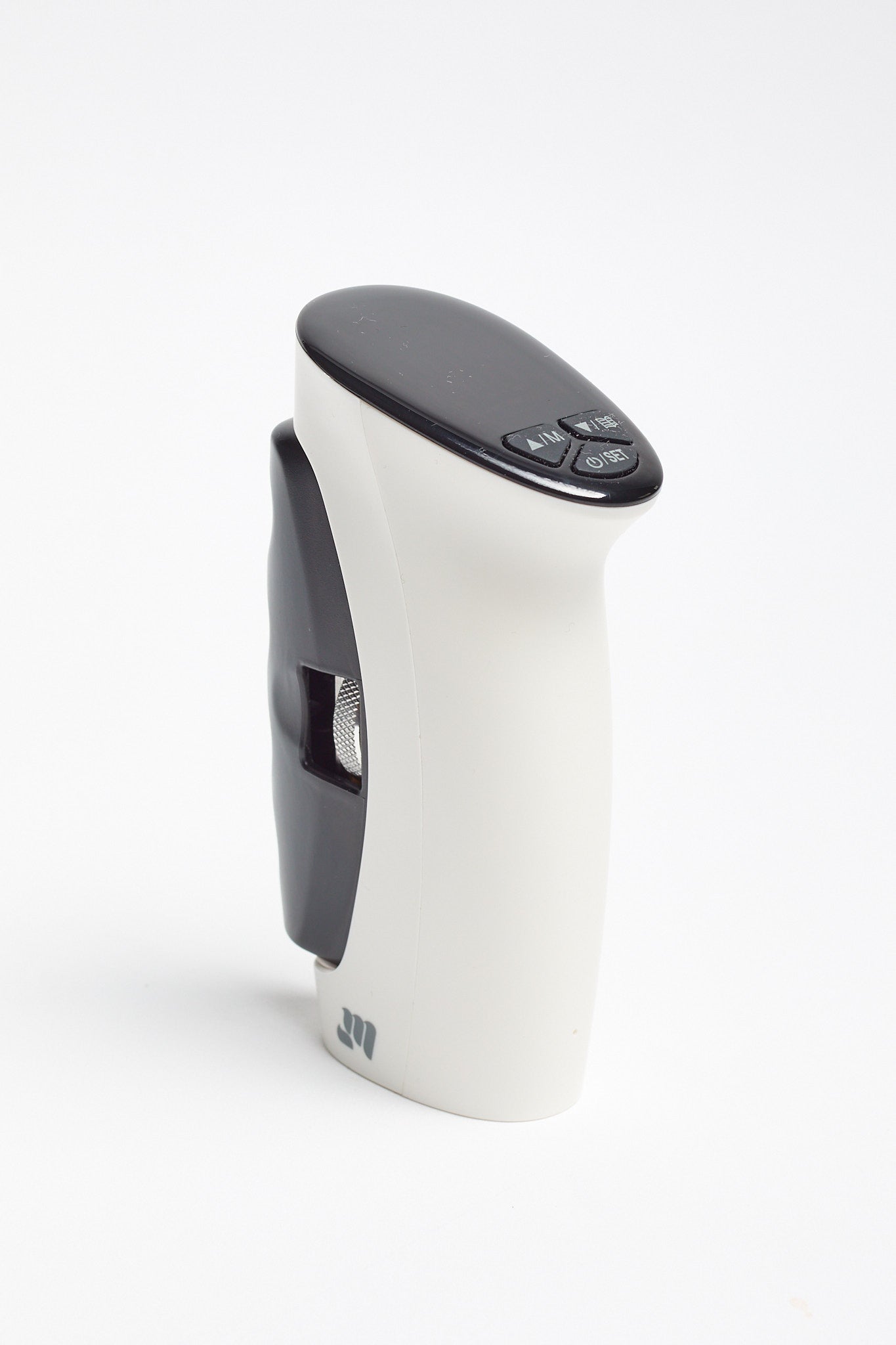
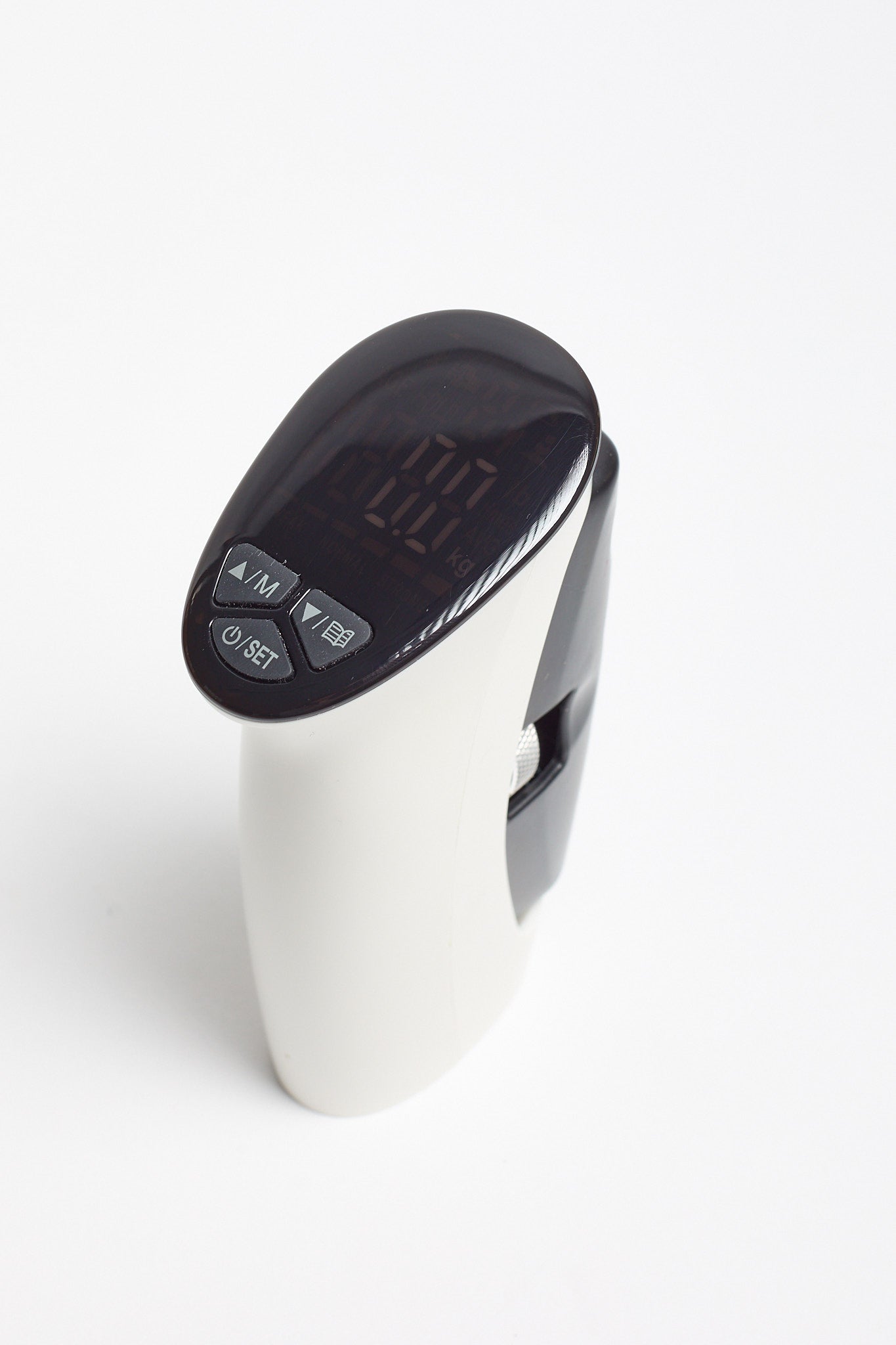
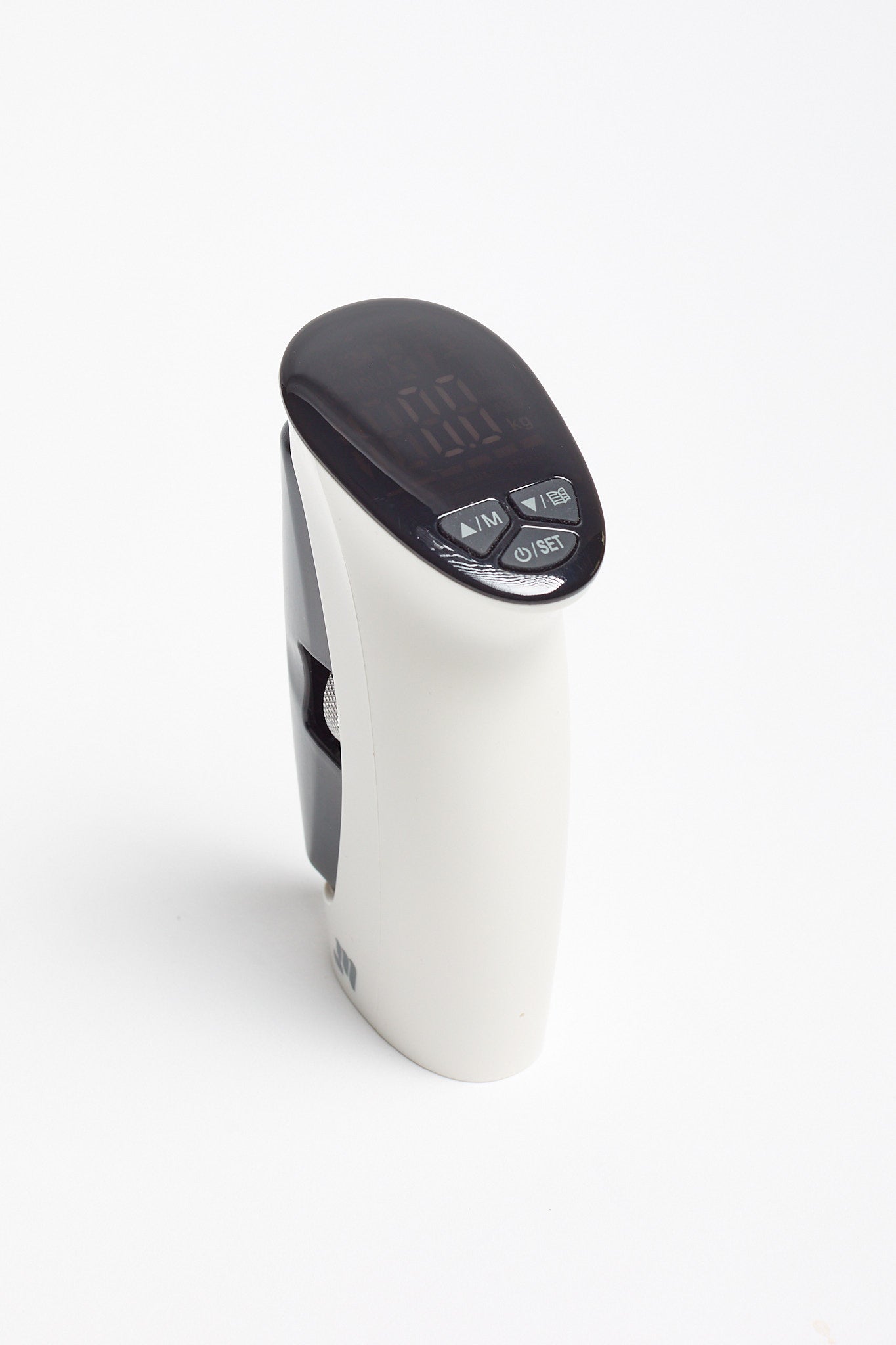
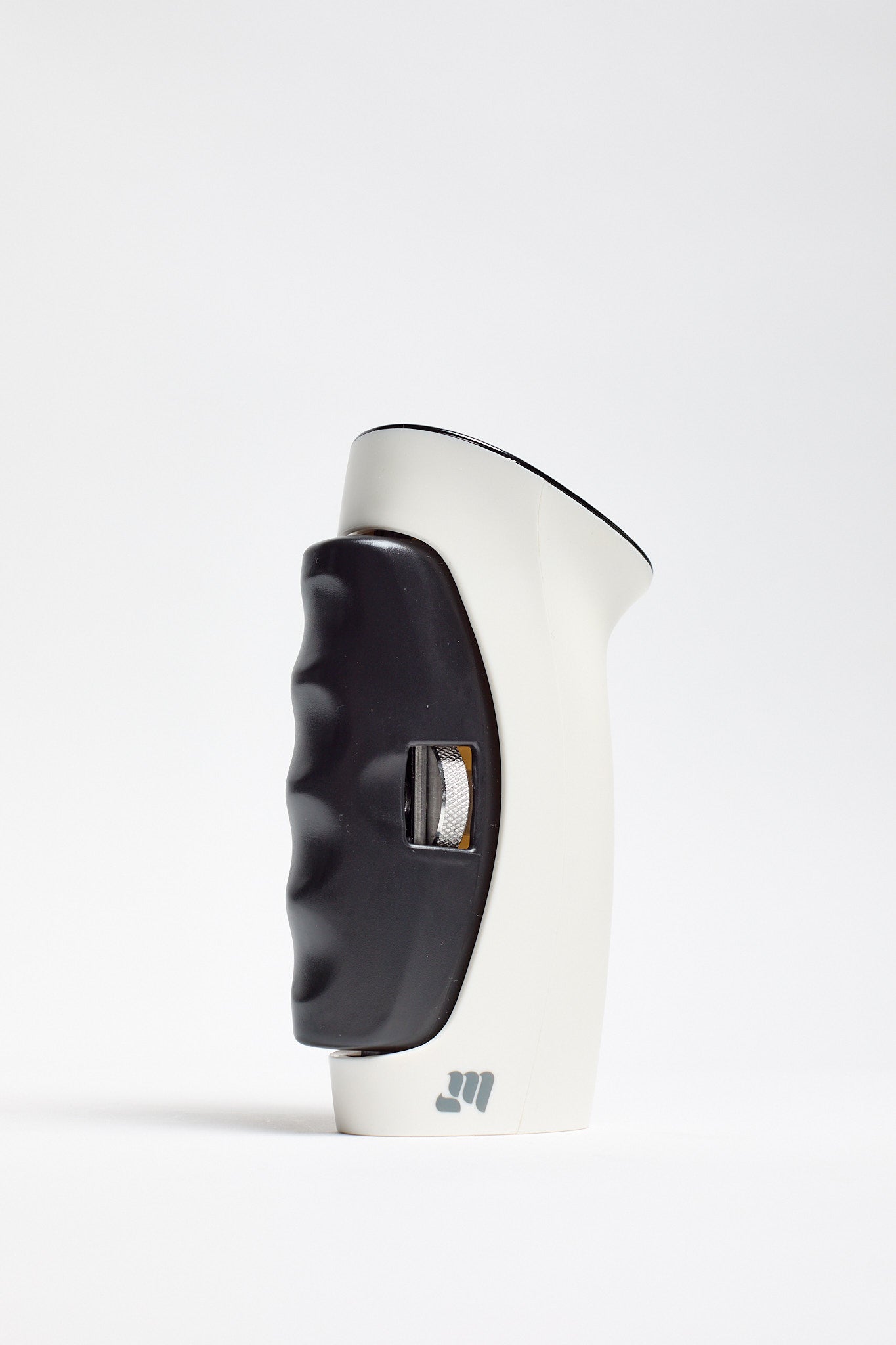
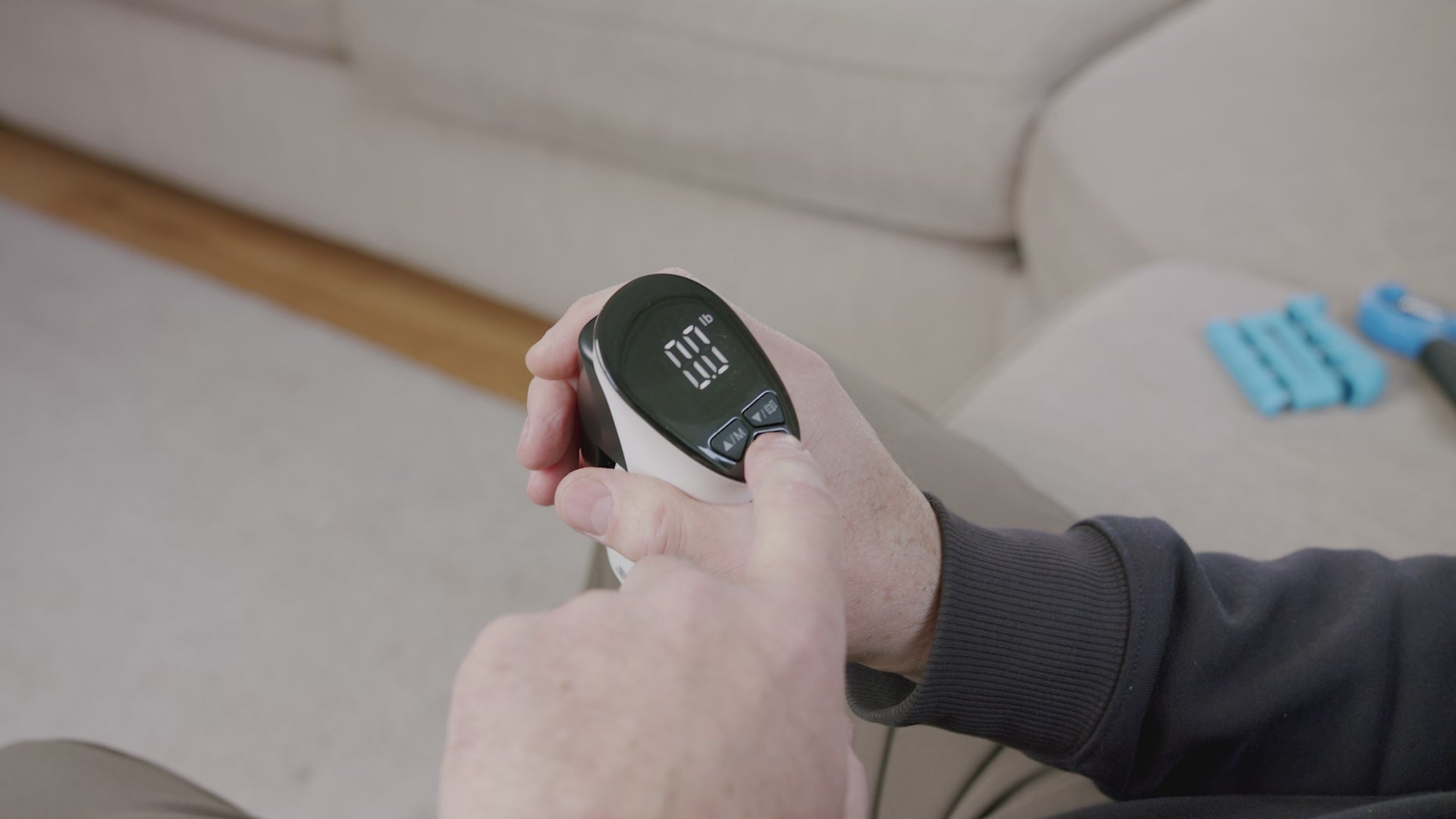
Dynamometer
- Regular price
- £28.00
- Sale price
- £28.00
- Regular price
-
The Mighty Mitts digital dynamometer is a user-friendly and accurate tool designed to measure your grip strength, providing valuable insights into your overall health and muscle strength.
Grip strength has been suggested as a biomarker of health and ageing and can provide an objective indication of medical status.
Considering the many ways in which we use our hands, it is easy to see how this type of strength affects every aspect of daily life. Whether this is about carrying shopping bags, opening a bottle of water or a jar, daily tasks become critical to maintaining independence and quality of life.
So, testing your grip strength isn't just about squeezing a gadget – it's about staying independent, keeping your balance, and getting a glimpse into your overall health.
- Handgrip Dynamometer
- User Manual
- USB C Cable Charger
Product features
Digital Display
Adjustable Handle
Memory Function
Objective Measurement
Key benefits
Muscle strength and function: This is the most direct measure. It tells you how strong your hand and forearm muscles are, which is crucial for everyday activities and can be affected by conditions like arthritis.
Bone health: Studies have linked grip strength to bone mineral density. Lower grip strength can indicate an increased risk of osteoporosis and fractures.
Functional capacity: Grip strength is a good indicator of overall physical function and ability to perform daily tasks. It's linked to your capacity for carrying supermarket bags, opening jars, and even getting up from a chair.
Nutritional status: Grip strength can be affected by malnutrition and deficiencies in key nutrients like protein and vitamin D.
Frailty and sarcopenia: Declining grip strength, especially in older adults, can be a sign of frailty and sarcopenia (age-related muscle loss), increasing the risk of falls, disability, and hospitalisation.
Heart: Research suggests a correlation between lower grip strength and an increased risk of heart disease, stroke, and other health related issues. This may be because grip strength reflects the health of your blood vessels and overall cardiovascular system.
Cognitive decline: Studies have found links between weaker grip strength and cognitive impairment. This connection may be due to shared underlying factors affecting both muscle and brain health.
Depression and anxiety: Some research suggests that lower grip strength may be associated with an increased risk of depression and anxiety.
Post-surgery or injury: Monitoring grip strength can be valuable for tracking your recovery after surgery or injury, helping you gauge your progress and ensure you are regaining function.
It's important to remember that:
Grip strength is just one factor: It's not a definitive diagnostic tool, but rather an indicator that can provide valuable insights into your overall health.
Consider your individual context: Factors like age, sex, and body size can influence grip strength. It's essential to interpret your results in relation to your own baseline.




